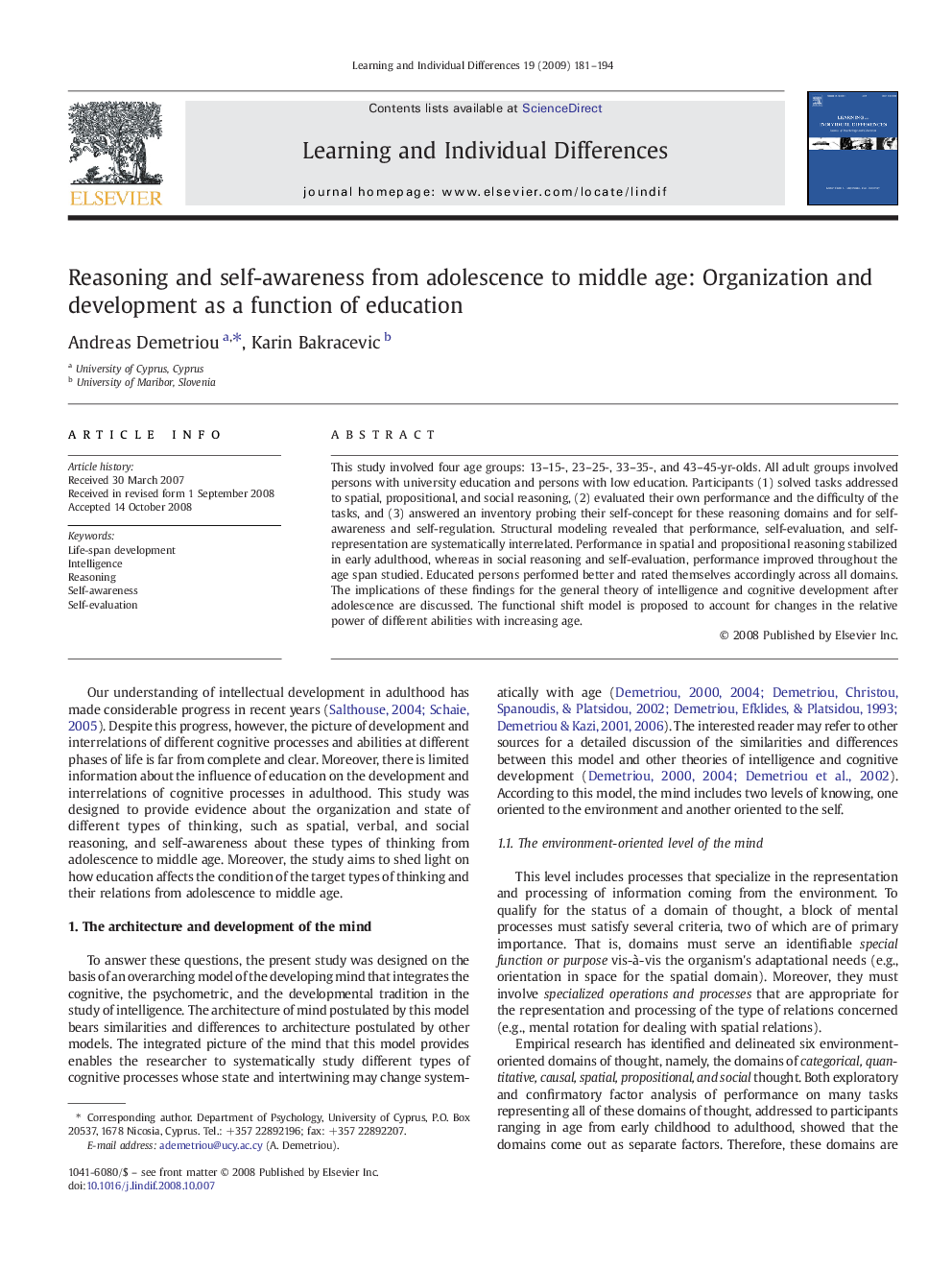| Article ID | Journal | Published Year | Pages | File Type |
|---|---|---|---|---|
| 365198 | Learning and Individual Differences | 2009 | 14 Pages |
This study involved four age groups: 13–15-, 23–25-, 33–35-, and 43–45-yr-olds. All adult groups involved persons with university education and persons with low education. Participants (1) solved tasks addressed to spatial, propositional, and social reasoning, (2) evaluated their own performance and the difficulty of the tasks, and (3) answered an inventory probing their self-concept for these reasoning domains and for self-awareness and self-regulation. Structural modeling revealed that performance, self-evaluation, and self-representation are systematically interrelated. Performance in spatial and propositional reasoning stabilized in early adulthood, whereas in social reasoning and self-evaluation, performance improved throughout the age span studied. Educated persons performed better and rated themselves accordingly across all domains. The implications of these findings for the general theory of intelligence and cognitive development after adolescence are discussed. The functional shift model is proposed to account for changes in the relative power of different abilities with increasing age.
